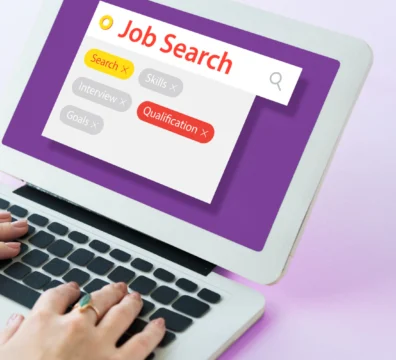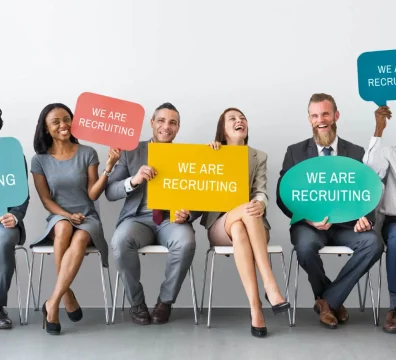Gone are the days when the relationship between employers or management and the employees was one of subordination, and a certain distance didn’t lead to the camaraderie we are used to now. Today’s businesses follow a more open-door policy and have a bottom-up approach towards work!
Employee and labor relations is a buzzword today in the business world, and it is for a good reason. A healthy relationship between employers and employees is key to a successful company and productive workplace. The human resource employee relations guide will unfold the necessities and tips to manage them in your organization.
Human resource employee relations are efficiently managed through staff outsourcing solutions, ensuring seamless and compliant handling of all employment-related matters.
Introduction to Human Resource Employee Relations
Human resource employee relations play an integral part in business management that reinforces the ties between the management and employees while making the organization a better workplace.
A report by Forbes states that nearly 45% of employees are estimated to be burned out by organizational changes in 2023. Therefore labor relations in human resource management is becoming the top priority for the HR team of every organization. However, some organizations may also hire a third-party employee relations manager.
For example, workplace conflicts are the most common issues in an organization. Ineffective communications usually result in disagreements and disputes between employees. Employee and labor relations in HRM refer to settling such disputes and conflicts before they negatively influence others or tarnish the reputation of the company online.
Examples of employee relations responsibilities
- Encouraging employee engagement
- Improving two-way communication in the workplace
- Workplace disputes and Conflict management
- Proper judgment of sexual harassment and bullying
- Overseeing workplace health and safety procedures
- Handling wage concerns
- Looking into labor and Industrial relations
Significance of Human Resource Employee Relations
86% of employees look into a company’s reviews and ratings before they apply for a job. It means building your company’s reputation is essential, and employee relations play a significant role in it.
Improved productivity
It is said that happy employees can increase your company’s productivity, and maintaining good human resource employee relations creates a comfortable work environment.
Creates loyal workforce
Investing in improving employee relations creates a pleasant work environment and improves employee loyalty.
Better performance
By lowering the employee turnover rate, you can reduce hiring and onboarding costs and spend them on training and improving the skills of existing employees. It helps in improving overall business performance.
Reduced conflict
When a company improves employee relations, it reduces conflicts, allows everyone to focus on what is essential, and maintains a peaceful work environment.
Legal compliance
As per local and international labor laws, proper working conditions have become mandatory. Employers nowadays need to guarantee a physically and mentally conducive workplace without discrimination based on race, gender, or physical abilities.
Build reputation
When you make your employees feel valued, they speak highly of you. It helps in building a good company reputation in the market.
5 Tips to Build Strong Human Resource Employee Relations
Human resources and employee relations often overlap as they focus on employee well-being but have a distinct purpose. Whereas HRM focuses on employee and workplace logistics, ER management is concerned with developing healthy employee relationships.
There are numerous strategies that HR and ER teams can follow to improve the overall business environment. However, here are five important tips for building strong employee relations:
Allow open communications
Companies must focus on having two-way communication with their employees, allowing for an open dialogue. Additionally, conduct regular surveys to gather employee feedback on working in your organization.
Ensuring an open-door policy for communication in your company improves employee retention and motivation, fosters employee loyalty, and improves overall organizational performance.
Ensure appreciation and gratitude
Employers must provide positive feedback and constructive criticism to all employees regularly that keeps them motivated and helps them improve.
Additionally, if you can adapt the process of recognising and rewarding good works, you inspire employees to aim higher and encourage them to make consistent improvements.
Invest in employees
It is essential to show your employees that you care about them by being kind and providing guidance and support. Besides paying them wages, you can provide additional perks like meal vouchers and gym memberships. Many organizations these days offer training and upskilling opportunities.
Companies must consider employees’ motivations, job satisfaction, and expectations to keep them happy and productive.
Devise a transparent policy
Every company looking to improve its human resource employee relations must devise transparent policies to enhance employee satisfaction and gain trust. These policies must be able to depict your company’s ethics, rules, and values that offer precise instructions to deal with employee-related issues.
Fostering DEIB (Diversity, Equity, Inclusion, and Belonging)
Companies should avoid preferential treatment based on race, gender, or other criteria to ensure strong and healthy employee relations. When you prioritize DEIB, employees believe you offer equitable opportunities for career development and create a respectful and supportive environment in the company. It helps everyone to participate in all programs, thrive, and be heard.
What Can Ruin Your Human Resource Employee Relations?
Numerous things happening in the company can spoil human resource employee relations and cause irrevocable loss to the company. Some of them are:
- Favoritism: It promotes demoralization among others working in the company.
- Unclear attitude: When you don’t have clarity regarding employees’ professional roles and responsibilities, it leads to stress and low productivity.
- Lack of communication: Without proper communication, employee retention and loyalty, productivity, and profitability halt.
- No clear vision: When your vision and mission statement are unclear to employees, you fail to achieve long-term goals, as they cannot connect their role with your objectives.
- Employee misconduct: If the employer is not following rules, they cannot set the tone of what behavior is unacceptable in the company.
Employment relationships in HRM can lead to a motivated workplace and set up a successful business if done correctly. Otherwise, it can destroy your organization’s overall productivity and reputation in the market.
What are the Roles and Responsibilities of Human Resource Employee Relations Managers?
ER managers are either part of the HR department of businesses. Their responsibilities include:
- Drafting employment policies and procedures
- Maintaining legal and regulatory compliance
- Complaint and conflict resolution
- Conduct workplace investigations
- Focus on employee engagement and satisfaction
- Involved in recruitment, onboarding, and exit interviews
- Ensure safe and healthy working conditions
- Look into compensation and benefits policies
- Indulge in employee and labor relations communication and negotiation
- Draft reward and recognition programs
- Create wellness and work-life balance strategies and programs for employees
Also Read: How to Write a Professional Summary For Resume to Impress Interviewers?
6 Pence Help in Improving Your Human Resource Employee Relations
Employee relations in business are pertinent as they create ways to ensure a healthy work environment and long-term business success. From conflict resolution, ensuring health and safety measures, dealing with management issues, and boosting employee morale, all these come under the employee relations department. Ensure you implement numerous strategies to strengthen employer-employee relationships and increase overall business performance.
If you want to supplement your in-house HR team with additional support and expert professionals helping you with operational and day-to-day administrative work, connect with us at 6 Pence. We are one of the leading outsourcing partners in Dubai, Oman, Iraq, and Bahrain, and offer staffing, recruitment, payroll management, and HR outsourcing services.
Connect with us and learn more!
Frequently Asked Questions
What is human resource employee relations?
Human resource employee relations is an organization’s operational effort to create a healthy relationship between an employer and its employees to create a better workplace environment.
What are examples of employee relations?
Examples of employee relations include offering onboarding support, mentoring, and coaching, recognising and rewarding outstanding performances, and resolving conflicts.
What are the employee relations goals of management?
The employee relations goals of management include:
- Inspiring employee motivation and loyalty
- Increasing engagement
- Improving retention and reducing turnover
- Creating a positive workforce culture
What are the different types of employee management relations?
There are mainly two types of employee management relations, vertical employee relations and horizontal employee relations.




































































































